South Sudan refugees search for missing loved ones
- Published
Emmanuel Igunza watches South Sudanese look for their missing relatives
"Maybe one day when there is peace in South Sudan, I will finally see my brother again," says David Dak Chak.
Towards the end of 2013 he was offered a job as a Red Cross worker, but fighting broke out just a few weeks later and, with his brother, he had to flee from the volatile town of Malakal, the capital of Upper Nile state.
But they got separated and that was the last time he saw his younger brother.
Mr Dak Chak moved to neighbouring Jonglei state with his mother not sure of the whereabouts of his brother.

"I was almost giving up on everything, and then in January I heard that the International Committee of the Red Cross (ICRC) team was here in Old Fangak, I went there and introduced myself.
"As I was waiting, they handed me a photograph album, and I just couldn't believe it when I saw my brother's picture in it."
As he recounts the story, he is clearly emotional and did a joyful jump at the memory.
It turned out that his brother had fled to neighbouring Ethiopia, and was living in a refugee camp just across the border.
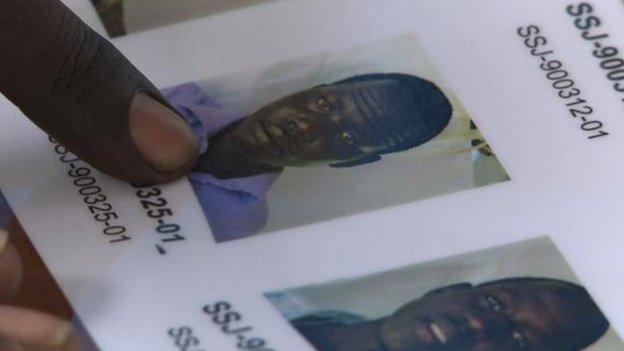
The photo albums contain portraits of hundreds who have been separated from their families
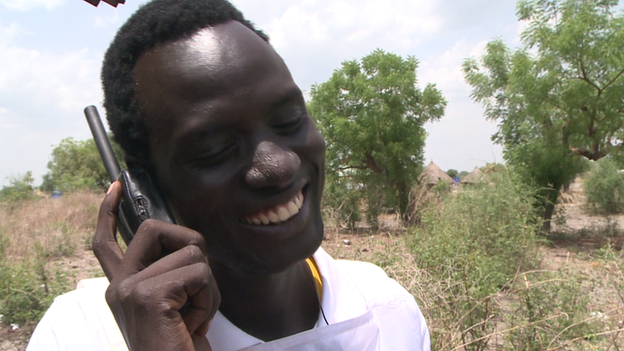
David Dak Chak's brother told him that he had continued his education in Ethiopia
Mr Dak Chak wrote to his brother in January and when I visited Old Fangak, the ICRC had good news for him: His brother had replied.
The ICRC then arranged a phone call and the two brothers spoke for the first time in more than a year.
Mr Dak Chak was happy to learn that his brother was continuing with his secondary school education.
The photograph album where he had spotted his brother is a collection of pictures of people seeking to be reunited with their families.
It has been nicknamed the refugee Facebook and copies of it are in circulation in refugee camps inside South Sudan and in neighbouring Ethiopia, Kenya and Uganda.
The same day that Mr Dak Chak spoke to his brother on the phone, 15 other people also discovered the whereabouts of their loved ones.
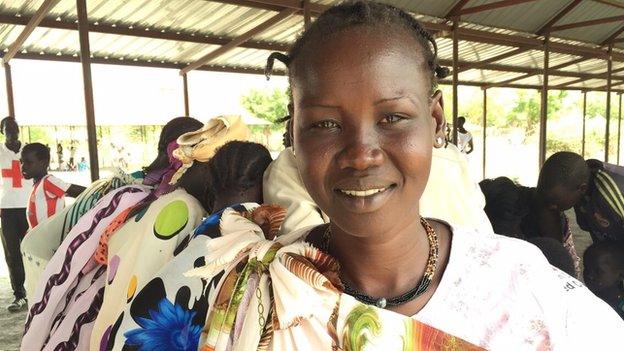
Nyangai Keek Gulong Gatyang found a picture of her husband in the photo albums
Nyangai Keek Gulong Gatyang was among the first people to arrive at the ICRC centre in Old Fangak to view the book.
After scouring the pages, the mother of six could not hide her joy after recognising her husband.
They had been separated since December 2013, when her husband travelled from Malakal to the capital, Juba. He was not able to return as fighting broke out and he had to find refuge in the UN camp in the city.
"I never lost hope but right now I don't know even know what I can tell him when I see him again," she tells me.
"Life has been very difficult supporting six children on my own. But just knowing that he is alive gives me so much happiness and hope of living again."
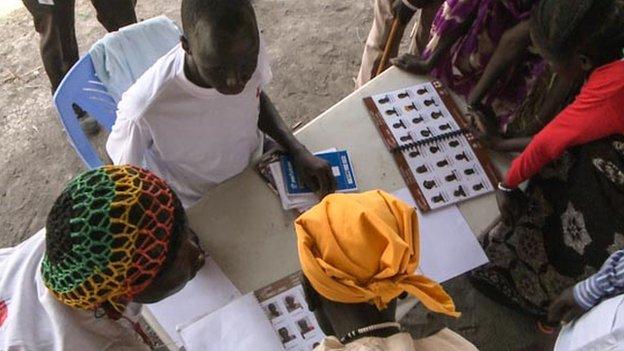
The photo albums have been dubbed "the refugee Facebook"
The ICRC says at least 90,000 people have benefitted from the programme in getting in contact with missing relatives.
The service has moved online, external for those living in the diaspora.
"The web page will allow South Sudanese people living abroad in places like the US, UK, Australia, Canada and France to look for relatives displaced by the violence," says the ICRC's Marc Studer, who is heading the project.
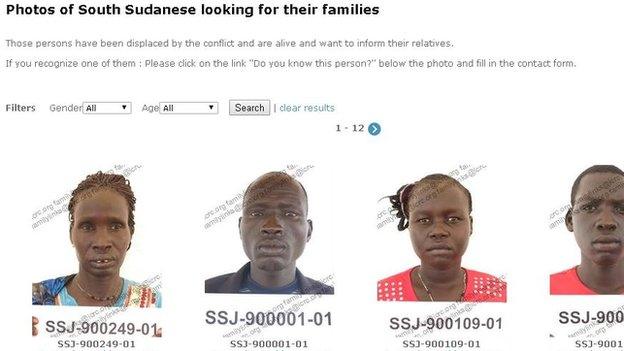
The service has moved online to help people in the diaspora find missing loved ones
But the harsh reality is many more will never find out what happened to their loved ones.
Last year, the International Crisis Group, external estimated that the number of those killed in the fighting could be around 50, 000 but warned that the figure could be much higher.
Much of northern South Sudan has remained inaccessible during the conflict and this has made it very difficult to count the number of dead.
Some local NGOs, like Naming the Dead, are trying to compile a list of those killed, external, so that people are not forgotten.
The conflict in South Sudan began in December 2013 after President Salva Kiir announced that he had overcome an attempted coup.
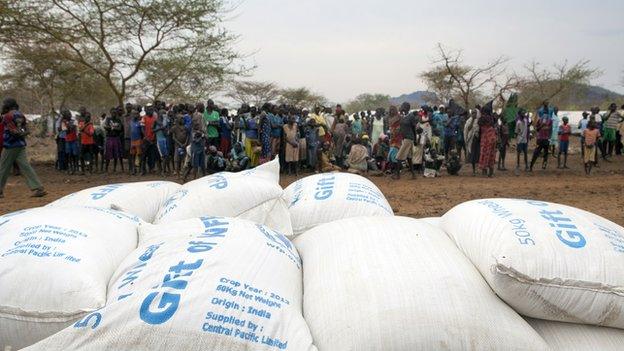
The civil war in South Sudan has created a big humanitarian crisis
Over the next few days, a large number of civilians from the Nuer ethnic group of former Vice-President Riek Machar were killed in Juba.
Nuer military units deserted and rallied to a new rebel army - led by Mr Machar.
They, in turn, carried out massacres of civilians in Bor, Bentiu and Malakal.
Despite a number of efforts to secure a peace deal, the conflict has still not ended and last month there was a flare-up in the fighting.
There will no doubt be more stories of separation in the future and not all of them will end with a happy reunion.